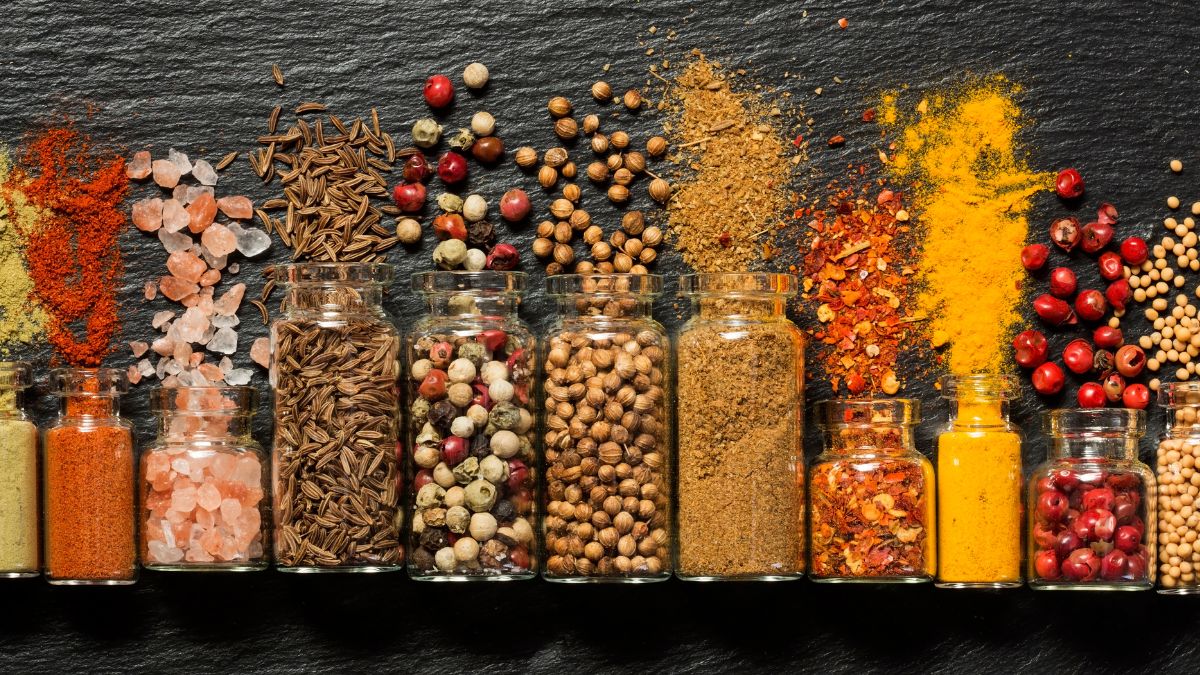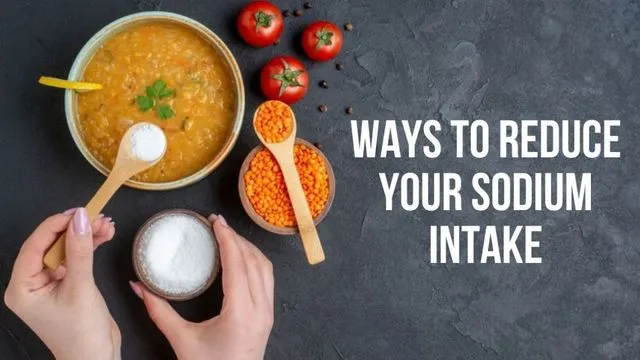- By Prerna Targhotra
- Wed, 22 May 2024 01:25 PM (IST)
- Source:JND
ICMR (Indian Council Of Medical Research) and (NIN) National Institute of Nutrition jointly released a new dietary guideline for individuals to focus on their holistic development. The ICMR guidelines talk about micro and macronutrients for the overall health and well-being of people. The ICMR amongst several other guidelines has suggested people reduce their salt intake to prevent the risk of hypertension, heart-related illnesses and stroke.
The amounts of sodium in our food have a direct impact on our overall health. When you consume excessive amounts of salt in your meals, it can cause immediate spikes in blood pressure levels and also elevate the risk of heart-related diseases. Here are some easy ways to reduce your salt intake naturally to prevent hypertension.
Ways To Reduce Salt Intake Naturally
Avoid Salty Foods
The obvious way is to avoid eating salty foods and eliminate them from your diet. Instead of salty foods, choose fresh and healthy foods such as fruits, green leafy vegetables, legumes etc. Always try to prepare your meals at home and sprinkle less amounts of salt over them.
Check Food Labels
Make it a habit to read food labels before buying any packaged foods from outside. You will notice that the amounts of sodium are always present on the packet, therefore read the ingredients and their amounts carefully to avoid consuming too much salt.
Avoid Processed Foods
Another easy way to reduce your salt intake is by avoiding processed foods. Always prefer less processed foods such as sausages, ham, bacon etc as they have less salt amounts. Also add fruits, green leafy vegetables, whole grains, nuts, seeds and meat.
Use More Herbs And Spices
Boost your foods’ flavours with natural herbs, spices, lemon, vinegar and salt-free seasoning blends. Start by cutting your salt amounts in half and work your way towards replacing them with healthy substitutes such as soy sauces and spice blends.

Ways To Reduce Sodium Intake (Image Credits: Canva)
Why does eating salt lead to an increase in blood pressure?
According to Ayurveda, excessive salt consumption can lead to an increase in blood pressure due to its impact on the body's Doshas, particularly the Pitta Dosha, which governs metabolic processes and is associated with the fire element. Salt, being inherently heating in nature, can aggravate Pitta Dosha when consumed in excess, says Dr Annu Prasad, an Ayurvedic consultant at Birla Ayurveda. This imbalance can manifest as hypertension or high blood pressure.
Furthermore, Ayurveda explains that salt has the quality of attracting and retaining water. Excessive salt intake can disrupt the balance of fluids in the body, leading to water retention. This retained fluid increases blood volume, which in turn raises blood pressure.
Additionally, Ayurvedic texts suggest that consuming too much salt can contribute to the accumulation of Ama, or metabolic waste, in the body. Dr Annu explains that Ama is considered toxic and can impair circulation, leading to cardiovascular issues such as hypertension. Excessive salt intake can cause high blood pressure (hypertension), hardening, and narrowing blood vessels. The blood and oxygen flow to the key organs decreases. Therefore, the heart strives more to pump blood throughout the body, which further increases blood pressure.
Dr Annu suggests that lifestyle practices such as regular exercise, stress management, and consuming herbs and spices with cooling properties can also help maintain healthy blood pressure levels according to Ayurvedic principles.
How Much Salt To Eat In A Day?
According to Dr Tushar Tayal, Lead Consultant, Department of Internal Medicine, CK Birla Hospital, Gurugram, the salt intake for a hypertensive person should be less than 2.5 gm per day or 1/2 teaspoon in the entire day.
Dr P.L.N. Kapardhi, Sr. Interventional Cardiologist CARE Hospitals Banjara Hills Hyderabad suggests that important elements of a diet conducive to hypertension include lowering your sodium intake as consuming too much sodium raises blood pressure. Blood pressure can be considerably lowered by limiting sodium intake to less than 2,300 mg per day, and ideally to 1,500 mg for people with hypertension.
Increasing consumption of potassium helps as it relaxes blood vessel walls and aids in the body's balancing of salt levels. Vine fruits, oranges, apricots, and leafy greens are foods high in potassium. Furthermore, these have minimal calories, which aids with weight management.

